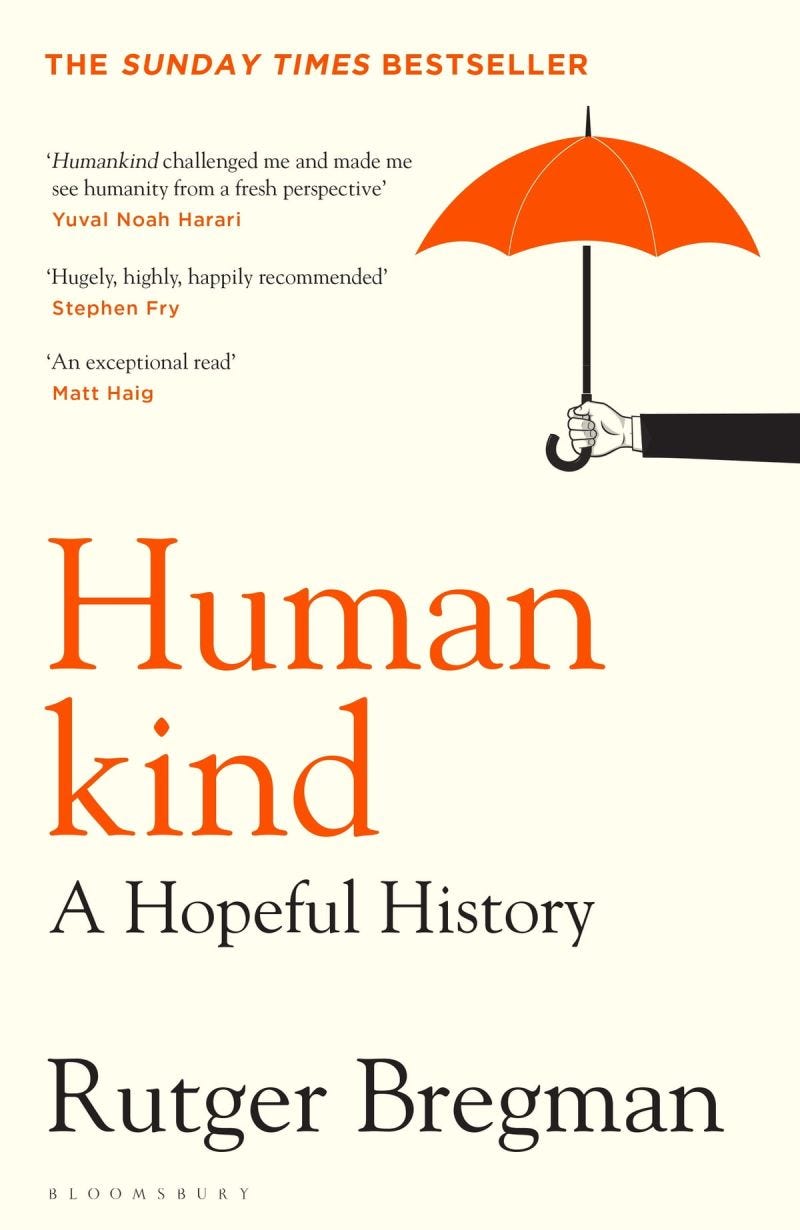Humankind
By Rutger Bregman
This book aims to counter the commonly held view that, if left to our own devices, we human beings will turn bad. It debunks many of the psychological studies that contributed to this rather negative view of humanity and showcases counter-examples to illustrate the underlying goodness in humanity. It also does its best to address examples of human evil from history, such as the persecution and murder of Jews by the Nazi regime during WW2.
Written for a mass audience, the book is an accessible and compelling read (or listen), although it does feel lightweight at times given the important themes it tackles. And while the book encouraged us all to be more sceptical about well-known historical experiments, including the Stanford prison experiment and the Milgram experiment, it didn't entirely convince us with its thesis of innate human goodness (as nice as it would be to jump wholeheartedly on the bandwagon).
But perhaps that is enough: In providing a compellingly divergent perspective, this book encourages us to look at the world afresh and trusts us to make up our own minds about human nature.
For me personally, the standout point is this: While some things are objectively true whether you believe them or not, like gravity and, let’s go there, climate change, many things relevant to our modern world are affected to a surprising degree by our beliefs. Examples include the effectiveness of medicines (placebo effect) and the abilities / behaviours of other people (Pygmalion and Golem effects—that people often live up to, or down to, our expectations of them).
This leads to the intriguing idea that turns my intuitive sense of causality on its head: While we might think that our beliefs are shaped by our experience of the world, what if our modern world is in fact shaped, to a much greater extent than we realise, by our collective beliefs? That would make our collective beliefs a hugely consequential (and underestimated) realm for human advancement.
Whether or not we agree with Bregman’s thesis, by opening our minds to such a possibility, this book makes an important contribution to the discussion about the way the world is today, how it might be in the future, and the paths that could lead there.
Book Reviews:
- https://www.theguardian.com/books/2020/may/12/humankind-a-hopeful-history-by-rutger-bregman-review
- https://traditionsofconflict.com/blog/2020/12/13/book-review-humankind-by-rutger-bregman
Podcasts:
- https://thepanpsycast.libsyn.com/episode-80-human-nature-with-steven-pinker-and-rutger-bregman-part-i-humankind#
- https://thepanpsycast.libsyn.com/episode-80-human-nature-with-steven-pinker-and-rutger-bregman-part-ii-further-analysis-and-discussion
- https://futurespodcast.net/episodes/25-rutgerbregman


